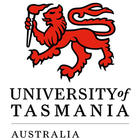Master of Public Health
Master of Public Health
The Master of Public Health will provide you with the tools necessary to make a difference in your community. You’ll learn to be a systems thinker and confidently navigate the research policy- practice interface. You will have the skills to design, implement, and evaluate complex evidence-based policy and practice interventions…
Categories
COURSE DESCRIPTION
The Master of Public Health will provide you with the tools necessary to make a difference in your community. You’ll learn to be a systems thinker and confidently navigate the research policy- practice interface. You will have the skills to design, implement, and evaluate complex evidence-based policy and practice interventions in local and global contexts.
This course will introduce you to epidemiological monitoring, health promotion, designing interventions to prevent or reduce the burden of disease and disability, health systems planning, management and evidence-based public health practice. The course also covers environmental health, non-communicable disease prevention, communicable disease epidemiology, and health economics.
The Master of Public is equally relevant to those who work within health as well as those wanting to move into the field of public health.
Course objectives
In year one of the Master of Public Health, you’ll develop knowledge for a globally recognised qualification by studying topics such as global health systems, public health intervention practice, health research, and systems thinking.
In year two you’ll develop specialised knowledge in the areas of environmental health, noncommunicable disease prevention, communicable disease epidemiology, and health economics. You’ll also have the choice of completing elective coursework units, or undertaking an individual research project supervised by an expert in the field which can be a pathway for entry to a PhD.
In the final year of the Master of Public Health, you’ll be able to choose from an elective coursework or major research project pathway.
Learning Outcomes
Generate and apply public health intelligence to inform decision making in public health practice, policy, and actions to address health challenges of local, national and global populations.
2 Use evidence-based research and evaluation methods to design, implement, and evaluate public health interventions, policies and systems that focus on prevention, protection and improving the health of populations.
3 Apply public health principles and systems thinking to ensure sustainable and resilient public health systems that prevent and mitigate the impact of disease and environmental threats.
4 Design, implement and evaluate preventive health policies, strategies, and interventions that address the socio-ecological determinants of health.
5 Engage, collaborate and communicate for ethical public health action and advocate for health, social justice and advanced health equity.
Career outcomes
Public health graduates play vital roles in ensuring health system resilience and reform in all countries. Graduates find employment in local, state, and national government ministries and health services, non-government health agencies, international health agencies, humanitarian organisations and universities. The many career options include:
Health policy analyst and advisor roles leading strategy and policy development, monitoring and evaluation and health system reform
Epidemiologists and health data analysts involved in surveillance and monitoring of infectious and non-communicable conditions and epidemiological reporting the patterns of disease
Public health expertise within the disciplines of medicine, nursing, midwifery, and allied health
Program managers designing, implementing, and evaluating health promotion and prevention interventions
Emergency, disaster, and humanitarian response coordinators
Public health academics teaching across the public health discipline and leading public health research.
REQUIREMENTS
Admission to most postgraduate coursework courses at the University of Tasmania require qualifications equivalent to an Australian bachelor degree. Applicants must achieve the required grade in their qualifying studies, meet any prerequisite subjects, and meet English language requirements to be eligible for an offer.Tertiary: Successful completion of an AQF7 Bachelor degree or equivalent in a health related field such as health sciences, medicine, nursing, dentistry, allied health, psychology, social sciences, environmental health and health services management.
English Language: IELTS 6.5 (no individual band less than 6.0)
TOEFL (iBT) 100 (no skill below: Reading 21; Listening 21; Speaking 21; Writing 25)PTE Academic 65 with no score lower than 58.
EDUCATIONAL INSTITUTION
The University of Tasmania was officially founded on 1st January 1890 and is located at Sandy Bay, Tasmania. In addition to the main campus at Sandy Bay, it also operates out of the Newnham Campus and the Cradle Coast Campus. The most popular courses offered are the environmental studies that include wilderness management, marine sciences and indigenous studies in Tasmanian literature. Other unconventional courses include agriculture development, studies on the community and population and ocean study programs. The university also comprises of a Music Conservatorium, Art school and a School of Clinical studies.




